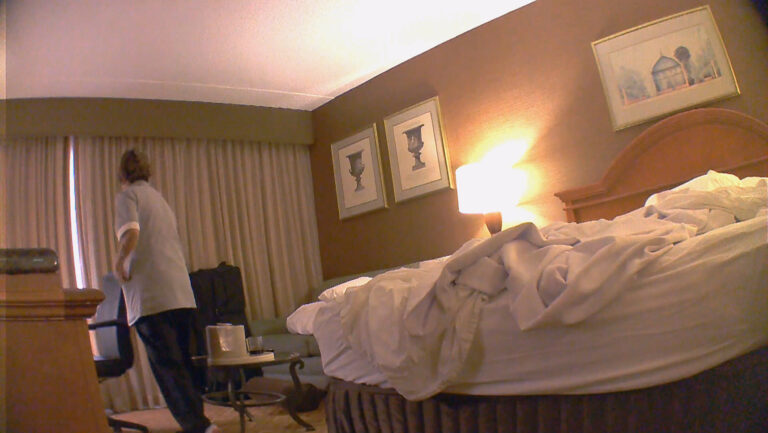How Do Hotel Managers Use Stem
Hotel managers use STEM (Science, Technology, Engineering, and Mathematics) to optimize hotel operations, implement technology solutions, analyze data, and improve guest experiences. With a focus on data analysis, technology integration, and strategic decision-making, hotel managers leverage STEM to streamline processes, enhance efficiency, and drive overall success in the hospitality industry.
Their responsibilities include managing budgets, supervising staff, coordinating departmental tasks, and providing excellent customer service. By utilizing STEM principles, hotel managers can effectively navigate the dynamic landscape of the hospitality industry and stay ahead of the competition.
Navigate Where You Want:
- Introduction To Stem In The Hospitality Industry
- Using Data Analytics For Decision Making
- Implementing Sustainable Practices
- Enhancing Guest Experience Through Technology
- Frequently Asked Questions For How Do Hotel Managers Use Stem
- What Is Stem In Hospitality?
- What Education Is Required For A Hotel Manager?
- What Are The Roles Of A Manager In A Hotel?
- What Are The 5 Basic Function Of A Manager In Hotel And Restaurant Industry?
- Conclusion
Introduction To Stem In The Hospitality Industry
STEM, which stands for Science, Technology, Engineering, and Math, is becoming increasingly important in the hospitality industry. It refers to the integration of these disciplines into various aspects of hotel management. The use of technology is a key component in hotel operations, from online booking platforms to data analysis for decision-making. Hotel managers utilize STEM skills to streamline processes, improve efficiency, and enhance guest experiences. These skills include problem-solving, analytical thinking, and innovation. By leveraging technology, managers can optimize revenue management, improve customer service, and create personalized experiences for guests. Additionally, STEM plays a crucial role in sustainability efforts within the industry, such as implementing energy-efficient practices and reducing waste. Overall, STEM is essential for hotel managers to stay competitive and deliver exceptional service in today’s digitally-driven world.
Using Data Analytics For Decision Making
Hotel managers rely on data analytics to make informed decisions and improve their overall operations. Collecting and analyzing data allows managers to gain valuable insights into guest preferences and behavior. Utilizing CRM systems, hotel managers can track guest interactions, preferences, and feedback, enabling them to personalize guest experiences and enhance customer satisfaction.
Data analytics also plays a crucial role in revenue management. By analyzing historical and real-time data, managers can identify trends and patterns in occupancy rates, pricing, and demand, allowing them to optimize room rates and maximize revenue.
To effectively utilize data analytics, hotel managers need to invest in robust data collection systems and employ skilled staff to analyze and interpret the data. By leveraging data analytics, hotel managers can make data-driven decisions for enhanced guest experiences and improved financial performance.
Implementing Sustainable Practices
Hotel managers play a crucial role in implementing sustainable practices in hotel operations. They utilize STEM principles to reduce energy consumption and waste, and implement green building technologies. By incorporating sustainable practices, hotel managers can reduce their environmental impact and improve their bottom line.
Some of the sustainable practices that hotel managers can adopt include:
- Installing energy-efficient lighting systems and appliances to minimize energy consumption.
- Using renewable energy sources, such as solar panels, to generate electricity.
- Implementing water conservation measures, such as low-flow faucets and toilets, to reduce water usage.
- Adopting recycling and waste management programs to minimize waste production and promote recycling.
- Using sustainable building materials and construction techniques to reduce the hotel’s carbon footprint.
Hotel managers can also promote sustainability by educating staff and guests about the importance of sustainable practices and encouraging their participation in green initiatives.
By incorporating these sustainable practices, hotel managers can create a more environmentally-friendly and socially-responsible hospitality industry.
Enhancing Guest Experience Through Technology
htmlHotel managers are constantly finding new ways to enhance the guest experience through the use of technology. One way they achieve this is by utilizing mobile apps for a seamless check-in/check-out process. These apps allow guests to bypass the front desk and complete the process on their own devices, saving them time and providing a more efficient experience. Another technology hotel managers are implementing is IoT devices, which enable personalized guest experiences. By collecting data on guest preferences and behaviors, hotels can tailor their services to meet individual needs. Additionally, virtual reality and augmented reality are being used to provide interactive guest tours. These technologies allow guests to explore different areas of the hotel and have a more immersive experience. Overall, technology is revolutionizing the way hotel managers operate, ultimately improving the guest experience.
Frequently Asked Questions For How Do Hotel Managers Use Stem
What Is Stem In Hospitality?
STEM in hospitality refers to the integration of Science, Technology, Engineering, and Mathematics in the management and operations of hotels and other hospitality establishments. This includes utilizing technology for efficient guest services, implementing data analysis for decision-making, and incorporating sustainable practices in the industry.
What Education Is Required For A Hotel Manager?
A high school diploma or equivalent is required for a hotel manager. They oversee daily operations, manage budgets, supervise staff, and implement marketing strategies to ensure efficient management and a positive guest experience. They must have strong communication and computer skills.
What Are The Roles Of A Manager In A Hotel?
The roles of a hotel manager include overseeing daily operations, managing staff, budgets, and marketing strategies, and ensuring compliance with laws and guidelines. They are responsible for providing strategic direction and maintaining efficient management.
What Are The 5 Basic Function Of A Manager In Hotel And Restaurant Industry?
The five basic functions of a manager in the hotel and restaurant industry are managing budgets, providing customer service, supervising maintenance, coordinating departmental tasks, and overseeing food and beverage.
Conclusion
Hotel managers play a crucial role in ensuring the smooth operation of a hotel and providing a positive experience for guests. From managing budgets and supervising staff to coordinating tasks and maintaining compliance, their responsibilities are diverse and demanding. By utilizing STEM principles, hotel managers can leverage technology, data analysis, and problem-solving skills to enhance efficiency and deliver exceptional service.
Incorporating STEM into hospitality management allows for innovative solutions and strategic decision-making, ultimately leading to the success and growth of hotels in today’s competitive industry.
Related Articles To Read:
- Do Hotels Change Comforters
- Do Hotels Change Sheets?
- Do Hotels Charge for Early Check in
- Do Hotels Charge for Late Check Out?
- Do Hotels Charge for Stained Sheets
- Do Hotels Check How Many Guests
- Do Hotels Have Atms
- Are Emotional Support Animals Allowed in Hotels?
- Are Hotel Deposits Refundable?
- Are Hotel Rooms Soundproof?





